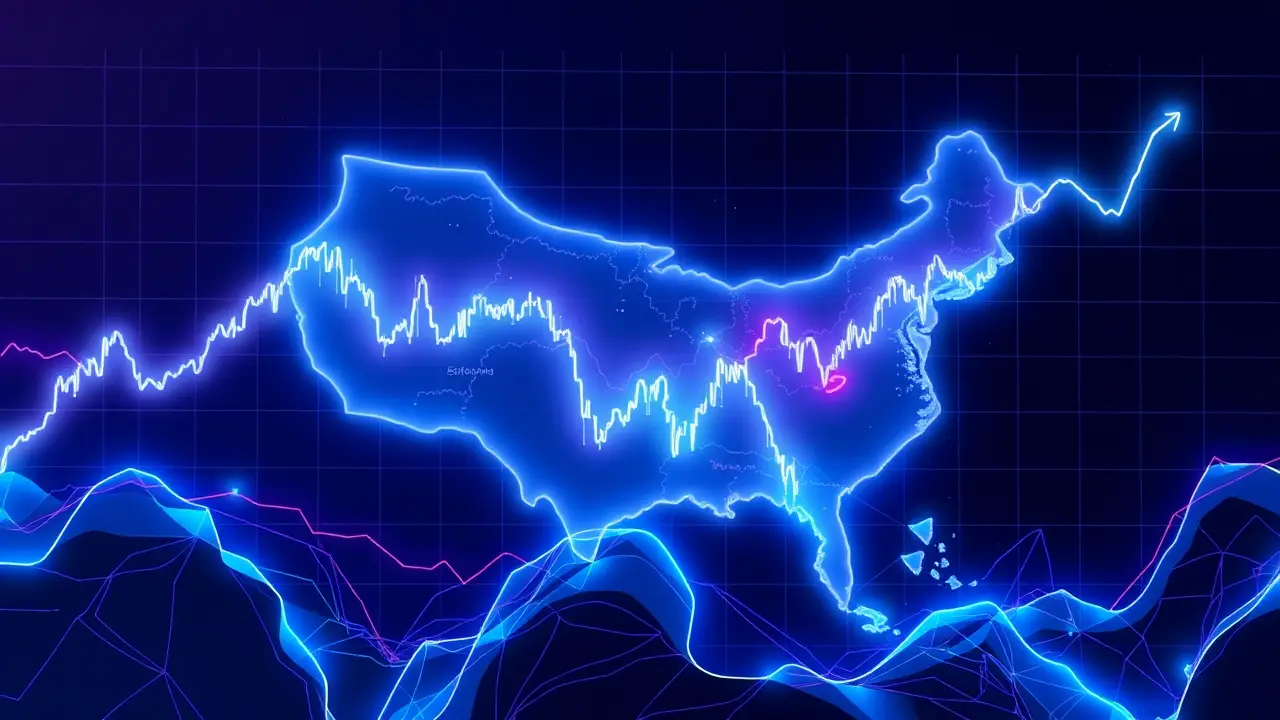US Markets Fall on Trump Threat to Cancel China Meeting
The S&P 500 didn't just dip; it plunged 2. 7%, a gut-wrenching slide that marked its most precipitous single-day fall since the anxious days of April, and the catalyst was a classic geopolitical tremor straight from the Oval Office.When the former President, Donald Trump, floated the possibility of canceling a critical high-stakes meeting with China, markets didn't just hear a political soundbite—they heard the chilling echo of a not-so-distant past defined by tariff wars and supply chain chaos. This wasn't an isolated data point in a vacuum; it was a stark reminder that for all the talk of earnings ratios and Fed policy, Wall Street remains profoundly vulnerable to the whims of political theater.The sell-off was broad-based, a clear signal that institutional investors, who have been cautiously optimistic about a soft landing, were immediately hitting the risk-off button, recalibrating their portfolios for a potential resurgence of the very trade tensions that had previously rattled global commerce and corporate profit margins. To understand the magnitude of this reaction, one must look back to the 2018-2019 trade war, a period where the S&P 500's trajectory became inextricably linked to the latest tweet from Mar-a-Lago, creating a volatility regime that traders had hoped was behind them.The threat taps directly into a fundamental market fear: uncertainty. A canceled meeting doesn't just mean a delay in dialogue; it signals a potential breakdown in the fragile diplomatic detente that has allowed for a tentative resumption of normalized trade relations, threatening everything from the cost of imported consumer goods to the revenue projections of tech giants with massive exposure to Chinese manufacturing.Analysts were quick to draw parallels, noting that sectors like semiconductors, industrials, and agriculture—the usual casualties in previous Sino-American spats—led the decline, a targeted sell-off that suggests a deeply ingrained market memory. The ripple effects were immediate, with Asian markets opening sharply lower and European bourses bracing for impact, illustrating the interconnected nature of the global financial system where a political statement in Washington can trigger a cascade from Frankfurt to Shanghai.From a macro perspective, this event throws a wrench into the Federal Reserve's delicate balancing act; just as policymakers are parsing inflation data to determine the path of interest rates, a renewed trade conflict could re-ignite inflationary pressures through higher import costs, complicating the 'last mile' of the inflation fight and potentially forcing the Fed to maintain a more hawkish stance for longer than the market has priced in. This is the kind of scenario that would give even a seasoned investor like Warren Buffett pause, underscoring his long-held principle that the best investment is one shielded from the unpredictable storms of geopolitics.The question now hanging over trading desks is whether this is a tactical bluff, a negotiating ploy ahead of the meeting, or a genuine shift back to a more confrontational posture. The answer will determine if this 2.7% drop is a mere blip, a buying opportunity for the brave, or the first crack in a broader market correction as the 'fear index,' the VIX, spiked to its highest level in months. The coming days will be critical, with every statement from Beijing and Washington scrutinized for clues, but one thing is already clear: the illusion of a decoupled market, one that moves solely on economic fundamentals, has been shattered, reminding everyone that in the modern financial era, political risk is perhaps the most potent and unpredictable variable of all.
It’s quiet here...Start the conversation by leaving the first comment.
© 2025 Outpoll Service LTD. All rights reserved.
